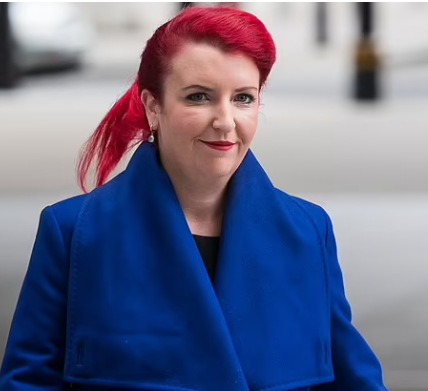Brits could live 50 miles from local town hall under Angela Rayner’s devolution plan that hands new powers over transport and housing to elected mayors_Nhy
Residents could face long journeys of up to 50 miles to visit their ‘local’ town hall under devolution plans to be unveiled by Angela Rayner today.
In a speech to regional leaders, the Deputy Prime Minister will vow to push power out of Whitehall and into the hands of people with ‘skin in the game’ across a range of policy areas including housing.
The Government’s devolution White Paper will be published today, with Ms Rayner due to say it will ensure regional powers are ‘no longer agreed at the whim of a minister in Whitehall’.
But critics have attacked measures in the plan which will reportedly ask all areas currently covered by two-tier local politics – a county council and a district or borough council – to come up with plans to form single councils covering around 500,000 people each.
When a similar change was made in North Yorkshire it left people in Selby, in the north of the area, having to travel 56 miles to its headquarters in Northallerton.
A Conservative Party spokesman said: ‘Under the last Government devolution was extended across England, and councils which wanted to unitarise were supported to do so.
‘Angela Rayner’s announcement is part of a plan by Labour to strip councils of their powers to make choices and to impose reorganisation from Westminster without local consent.
‘The Conservatives delivered over one million new homes in the last parliament, and whilst we recognise the need to build more, these must be in the right places.

In a speech to regional leaders, the Deputy Prime Minister will vow to push power out of Whitehall and into the hands of people with ‘skin in the game’ across a range of policy areas including housing.

Lord Houchen, the Tory elected mayor in Tees Valley, said the changes were a ‘real step in the right direction.’
‘This new announcement will do nothing to solve that – and instead open up another front on Labour’s assault on the countryside.’
However, Lord Houchen, the Tory elected mayor in Tees Valley, said the changes were a ‘real step in the right direction.’
He told Politico’s London Playbook: ‘Some will be frustrated it hasn’t gone further, but devolution is a journey — and whilst it might take time, it’s a one-way street.’
Essex, Kent, Surrey and Hertfordshire will be among the counties set for changes to the way they are run, with the promise of more powers and money from Whitehall.
Norfolk and Suffolk will also be restructured, with their district councils being abolished and merged into new unitary authorities.
Around ten areas of the country are open to the reforms and will be part of the first wave of overhauls.
The proposed changes, in the English Devolution White Paper, will also transfer more powers to regional mayors around planning and transport.
In a speech in Leeds later, Ms Rayner, the deputy prime minister, is expected to say: ‘Our English Devolution White Paper will be a turning point when we finally see communities, people and places across England begin to take back control over the things that matter to them.
‘When our proud towns and cities are once again given the powers they need to drive growth and raise living standards as part of our ‘Plan for Change’.
‘Devolution will no longer be agreed at the whim of a minister in Whitehall, but embedded in the fabric of the country, becoming the default position of government.’
Meanwhile a minister this morning suggested some local elections next year may not go ahead as planned as local authorities could be closed or merged,
Jim McMahon, the local government minister, said he would set out the detail of that this afternoon in Parliament when asked if all local county council and unitary authority elections due to take place in May would go ahead.
He told LBC: ‘At the moment, the assumption is that elections are going ahead. However, it’s usual in a process of reorganisation, that when a council makes a request for reorganisation, that if there are elections taking place, to a council that essentially won’t exist within the term of those elections, then you hold off the elections and you elect to a shadow body and the shadow body basically is a form of the new councils that will follow.’
Some local authorities have already requested reorganisation, he said.
Asked if some local authorities would be closed or merged, he said: ‘That’s the nature of reorganisation.’
There will be a statutory consultation before any authorities are changed, he said.
‘This is about local areas coming to government to say: ‘We want to be part of this devolution agenda. We want reorganisation as part of that,” he said.


